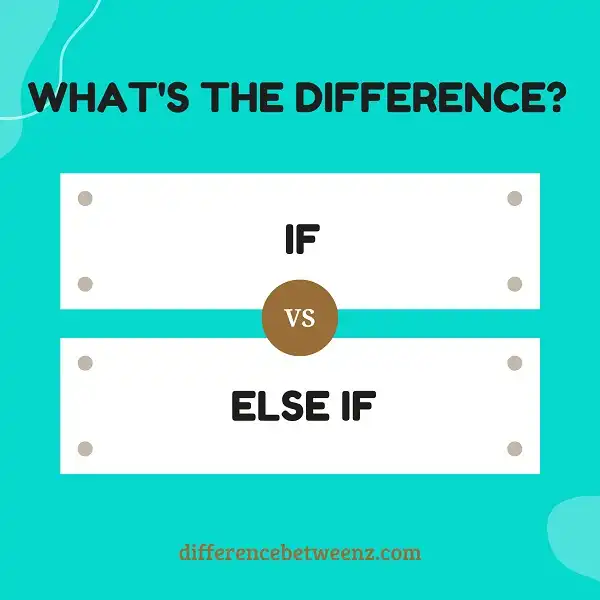One way to think about the difference between if and else if is that if checks a condition and executes a certain set of code only if that condition is true, while else if checks multiple conditions and allows you to execute different code depending on which condition is met. In other words, if can be thought of as a single-condition switch statement, while else if is more like a series of nested If statements. Both are useful programming tools, so it’s important to understand the differences between them. Let’s take a closer look!
What is If?
In programming, the keyword “if” is used to create a conditional statement. This statement will only execute if the condition is true. For example, you could use an if statement to check if a user’s input is greater than 10. If it is, you could print out “The number is greater than 10.” Else if statements are used when you need to check multiple conditions. Else if statements come after the initial if statement and they will only be executed if the previous conditions are not met. For example, you could use an else if statement to check if a user’s input is less than 10. If it is, you could print out “The number is less than 10.”
What is Else If?
Else If is a programming construct that allows for multiple conditions to be checked. It is typically used in conjunction with an If statement, and it provides a way to test multiple conditions before taking action. Else If works by first evaluating the If statement. If the condition is true, then the code within the If block will be executed. However, if the condition is false, then Else If will check the next condition. This process continues until a condition is met or all conditions have been checked. Else If can be used to create complex decision-making logic within a program, and it is an important tool for any programmer to master.
Difference between If and Else If
The main difference between “if” and “else if” is that “if” statement is executed only if the condition is true while “else if” is executed only if the “if” statement before it is false. Basically, we use an “if” statement when we want to execute a certain piece of code only if the condition is true while we use an “else if” statement when we want to execute a certain piece of code only if the condition before it is false. Another difference between “if” and “else if” statements is that we can have multiple elseif statements after an if statement while we can have only one else statement after an if statement.
We should also note that an else statement will be executed only if all the conditions before it are false while an elseif statement will be executed only if the condition before it is false. Finally, the elseif statement comes before the else statement. So, those are some of the main differences between “if” and “elseif.” I hope that clears things up for you.
Conclusion
In programming, the else if statement is used to check whether a certain condition is true or not. If it is, then another set of statements will run; otherwise, the program will continue running after the if statement. Else if can be useful for checking multiple conditions and providing different actions depending on the outcome. However, it’s important to remember that else if should only be used when there’s no other way to check all the conditions in one go.


